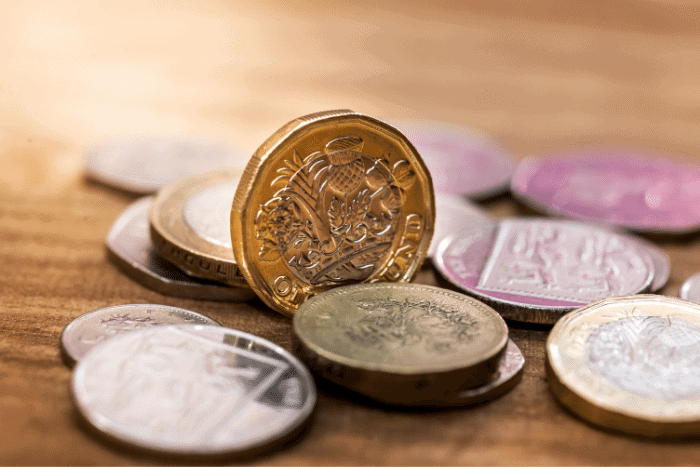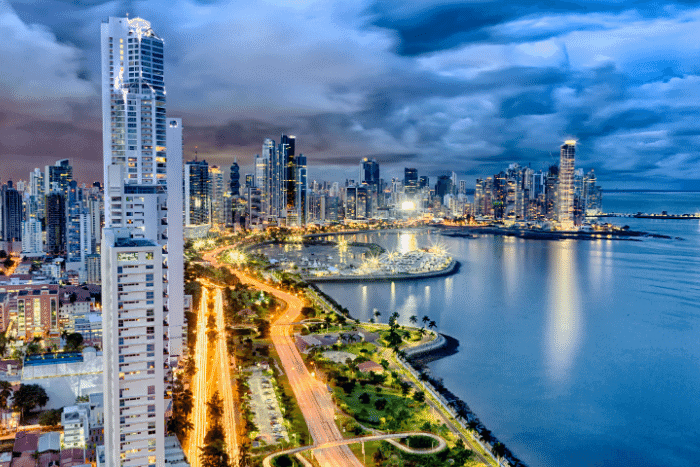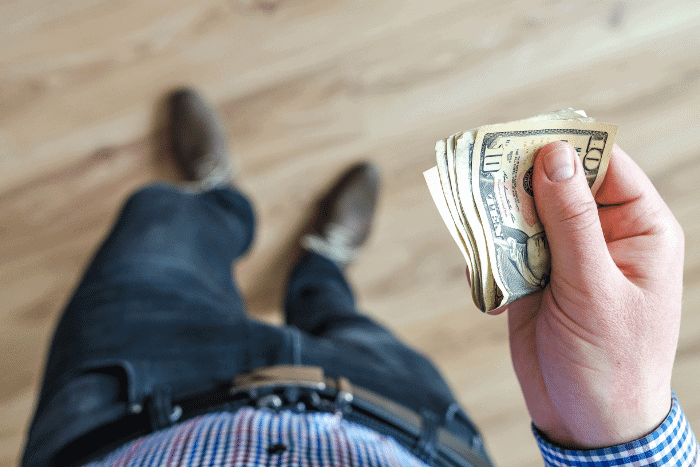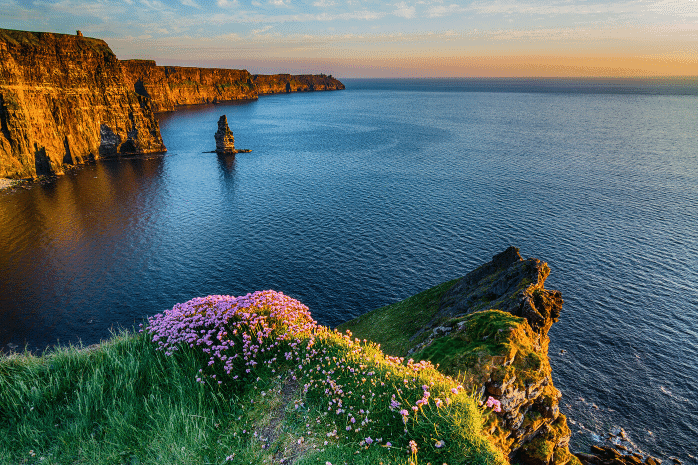Dateline: Tbilisi, Georgia
The coronavirus and ensuring market panic should be enough to convince anyone that a financial crisis can happen at any time and for any reason.
From recessions and global pandemics to wars and political changes, markets can turn on a dime and you should be prepared. Having all your eggs in one basket is a bad idea because, when financial chaos ensues, people and governments react in crazy ways that could limit your access to your wealth.
I’ve never been a doomsdayer or a prepper, and I don’t think we’ll see an economic collapse that will totally end the world. What the coronavirus panic has taught me is that markets and those who invest in them are irrational and that the same people who believed the bull market party would never end will run and hide under their desks equally as fast.
Sane diversification on a global level is the key to protecting yourself no matter what happens. We live in a globally connected world that requires us to move beyond the traditional “stocks and bonds” diversification.
In this article, I’m going to give you suggestions for what to do before an economic collapse; call it an economic collapse preparation list. I have a positive outlook on the world economy in the long-run, but I realize there will be times when markets, currencies, and asset values will fall sharply.
This is about being prepared financially, not storing seeds in your basement, although taking basic precautions to ensure you can eat and get health care is always a good idea, too.
What is an Economic Collapse?

Angkor Wat, Cambodia: Uncorrelated frontier markets like Cambodia completely avoided the global financial crisis of 2008.
Before we create your economic collapse preparation list, let’s define what an economic collapse is. It’s different for everyone, and your definition influences what you should do about it.
What would life look like if the stock market dropped 50%? What would be the cause? How long would the financial crisis last? Where would you live, work, and send your children to school during this crisis?
I would define a crisis as one where every asset class took a substantial hit.
During the Great Recession of 2008, equities of every stripe took a beating. Up until that time, I had been dollar-cost averaging part of my monthly business income into US mutual funds, figuring that’s all I needed to do to succeed.
It was during the recession that I learned that US mutual funds alone are not much diversification. At that time, real estate values were tumbling as well; there was nowhere to hide.
Except, that is, overseas.
While many markets took the brunt of the economic downturn, frontier markets like Cambodia were actually up. Precious metals went through the roof, and foreign currencies would outperform the US dollar in years to come as the economy recovered.
Your action plan for a financial crisis depends on your individual needs such as your monthly bills, how much debt you have, and where you plan to live.
Here are some suggestions that make good sense for any successful entrepreneur or investor to dampen the next financial crisis.
1. Hold Foreign Currencies

From the exotic to the post-Brexit British pound, you can benefit by holding foreign fiat currency.
While many foreign currencies haven’t fared well against the US dollar in the last few years, things haven’t always been that way. In the last decade, the US dollar was actually weak against many currencies.
Now, dollars can buy more of other undervalued currencies. Some foreign currencies deserved to get trashed, but not all.
The Singapore dollar is considered a safe haven currency and offers higher yields than the dollar and acts as a hedge if the dollar drops.
A beaten-up post-Brexit pound may not be a bad hedge, either.
More exotic foreign currencies such as the Georgian lari pay up to 12% interest and also offer geopolitical diversification.
Overall, holding foreign currencies in an offshore depository bank account is a great way to increase the return on your cash holdings and combat the negative interest rates governments and central banks love to implement in the face of financial crisis and looming economic collapse.
2. Hold Alternative Currencies

Alternative currencies like crypto and gold will act as a hedge against panic during an economic collapse.
In addition to holding multiple fiat currencies, you should also hold alternative currencies like gold, silver, and cryptocurrency.
Central banks in emerging countries from Russia to Turkey to Colombia have been stockpiling gold in recent years, calling it a safe haven with which they can rebuild their economies in the event of a financial collapse.
You can do the same.
Holding gold and silver will help hedge against panic in global markets; it’s also harder for a bankrupt government to confiscate gold and silver held overseas.
We recommend storing the bulk of your holdings in safe offshore vaults in neutral jurisdictions like Singapore that have no government debt. You may also want to keep some gold coins or silver bars at home.
I don’t believe the world will end and force everyone to buy loaves of bread with silver coins. There are more benefits to buying gold and silver than as a hedge against the next financial crisis.
Precious metals vaulted offshore, outside of the banking system are legally non-reportable for Americans and some other nationalities as well. But that’s just the tip of the iceberg when it comes to the benefits of owning precious metals. You can learn more about buying, selling, storing, and protecting your assets through the many gold-related articles on our site.
The bottom line?
Having physical assets where others can’t get them is a good way to prepare for a financial crisis.
3. Have an Offshore Bank Account

Banks in Panama will not be caught up in the panic going on in your home country, creating redundancies.
For the cash you do keep on hand, keeping some of it offshore will provide safety and redundancy. We’ve seen how banks in Cyprus, Greece, Argentina, and elsewhere handle chaotic times: they limit your access to money and make you wait in long queues to access whatever amount of your cash they deem fit for you.
Opening an offshore bank account is a legal way to not only diversify into other currencies, gain access to new investments, and enjoy asset protection, but also to keep some of your cash safe from fat-fingered bureaucrats who forgot you already paid your taxes or bank employees who want to limit your account.
I keep a number of debit cards from banks around the world that I can use to make purchases or take cash from the ATM.
Banks in Panama, for instance, are exempt from whatever panic is happening where you live, so having multiple redundancies increases your chance of having access to cash.
Banking offshore isn’t about hiding money, so make sure you consult an international tax advisor to report any accounts you have if your country requires it.
4. Have a Second Passport

Having a second passport will secure your entry into other countries when SHTF.
On your economic collapse preparation list should be citizenship in another country. The coronavirus panic severely limited travel, even for people who weren’t in the hotspot. If you were a Chinese citizen living on a deserted island far away from the virus, you too suddenly found yourself without a lot of travel options.
Even Canada closed its borders to all non-citizens or residents in an effort to slow the spread of the virus.
Having dual citizenship means you’ll always have more than one place to go – more than one place that will not refuse to take you in a crisis. In reality, there are numerous benefits to having more than one citizenship identity to rely on.
Depending on where you’re from, your country could face new restrictions on travel in a crisis; just look at countries like Venezuela or Serbia that once had great travel freedom but found themselves stuck during tough times.
A lawyer friend of mine recalls a fable-like story his Chinese client once told: “We were raised to have a second set of papers, some gold bars, and a fast boat in the harbor for when times get bad.”
Read all the ways to get a second passport to learn how you can get a second citizenship for yourself and your family so you always have a safe haven that must accept you in good times and bad.
5. Have a Home in a Safe Haven

Knowing you have a place you call home in another country will help break down the mindset barrier that keeps many people trapped in a bad situation.
In addition to a “second set of papers”, owning real estate in a safe foreign country will make it easier for you to escape if the next economic crisis hits too hard to home.
In my years of working with clients to create and execute offshore Plans, I’ve found that mental barriers are stronger than any other. If you don’t know specifically where you’re going when you leave your home country, you’ll be more hesitant to leave.
Owning a home overseas that you can use whenever you want will not only serve as a good investment, asset protection, and diversification, it will also ensure that you feel at home in a safe haven country if things ever get bad.
6. Crisis-Proof Your Income

Diversify your investments, become location independent, and crisis-proof your income.
While I work with location-independent entrepreneurs and investors, I also know that many business owners don’t have a flexible business location. The best way to prepare for a financial crash is to have an income you can take with you anywhere.
This can include having multiple sources of investment income from different places. If all of your rental properties are in Nashville or Adelaide, you may take a large hit on all of them if something happens locally. If you invest in real estate and REITs in different countries, you will be more prepared.
There are numerous options for diversification overseas that you can use to create a solid asset allocation stratetgy.
You also need to ensure that your actual job or business income is portable. It doesn’t matter if you work in a factory or in the C Suite; when a financial crisis hits, you’ll be affected if you work from one fixed location.
I’ve had clients who were seven-figure earners in the corporate world and lost income because the office was closed over a security threat or pandemic.
If your income is not location independent, now’s the time to create one that is.
If you have a job, consider an online business as a “side hustle” after hours. You could also offer side consulting services and build a consulting practice you can take anywhere.
One high-level employee I know worked with his wife to run affiliate websites, while another started selling products on Amazon.
If SHTF, you can take this business income with you so leaving the crisis behind won’t be a difficult choice.
7. Maintain Liquidity

While it may require some sacrifice during the good times, having a cash reserve on hand can be your saving grace in the wake of economic collapse.
Having cash is the best way to ride out the next financial crisis. While cash can take different forms, maintaining liquidity will help you weather a drop in your business when customers are harder to come by or can’t pay their bills.
I’ve always believed in stockpiling cash, and while there is an opportunity cost during the good times, I know that I can continue to operate my business, pay my team members, and support my family with the cash I’ve kept on hand.
Liquidity can take the form of cash in a bank, cash in your safe, or gold sitting in a coffee can.
While I am an advocate of offshore gold storage and offshore term deposits that pay higher interest, it’s also important to have cash you can get to immediately.
No matter what.
By spreading your liquidity across several banks or locations both at home and overseas, you should be protected no matter what happens.
8. Avoid Government Retirement Accounts

Governments from Ireland to Poland have given into the temptation to dip into retirement accounts during times of financial crisis.
Out of all the things I teach, my advice to never fund an IRA or 401k is among the most controversial. “But what about my IRA match?!”
Getting “free money” in the form of a match from your employer may seem nice, as does “tax-deferred” growth that you’ll enjoy in an IRA, Superannuation, or whatever retirement scheme your country offers.
Here’s what’s not nice: in an economic collapse, your bankrupt government will try to take that money to pay their other bills. Recent history has shown that when the stuff hits the fan, governments in need of liquidity will happily raid pension funds.
In Ireland, employees were automatically enrolled into a pension scheme at the same time the government was literally stealing from pensions. Poland followed suit with a “shakeup” – read: theft – of its pension system in an effort “to finance an ambitious welfare spending agenda”, said Reuters.
Pension plans guaranteed by governments from Russia to the United States have seen those same governments renege on their word when it became convenient. And I expect that to happen again in the next financial crisis or the next moment of panic.
Governments are hundreds of trillions of dollars in debt and private retirement funds are the largest untouched cookie jar available to the government. As more people in the western world live paycheck to paycheck with little savings, politicians will have an easy time of it by simply deriding anyone with significant retirement savings as “the evil rich”; political pressure gone.
I can’t say for sure that you’ll be able to recover an employer match with higher returns overseas. Protecting against risks comes with a premium, but I’d rather have total control of my money even if that means slightly lower returns.
On an actuarial basis, the risk that an insolvent government run by the politicians who created the insolvency will grab your cash is just too high to not have your money out of their reach.
Rules for accessing your retirement accounts can change at any time; don’t think that today’s law will be the law forever. Some laws even apply retroactively.
Prepare for a Financial Crisis Today

Rain or shine, good investment advice is good investment advice. Never keep all your eggs in one basket.
Whether an economic collapse ever occurs, preparing for one today will protect and grow your money well into the future.
The strategies I’ve outlined here are all tools we use every day here at Nomad Capitalist to help our clients design a life of freedom and prosperity on a global scale.
The same strategies that will protect your wealth in a financial crisis will also legally reduce your taxes, benefit your business, diversify your investments, and expand your travel privileges in the good times.
Whether you’re here because there is currently a global financial crisis or you want a Plan B for when the economic collapse arrives, the best plan is to act now.
Don’t wait.
The only risk is inaction. The only costs come with delay.
If you are ready to act now, our team is here to help you create a bespoke offshore plan to protect and grow your wealth. Feel free to reach out.
Source: https://nomadcapitalist.com/2020/03/19/how-to-prepare-financial-crisis/
